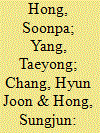|
|
|
Sort Order |
|
|
|
Items / Page
|
|
|
|
|
|
|
| Srl | Item |
| 1 |
ID:
171478


|
|
|
|
|
| Summary/Abstract |
Renewable energy electricity, such as photovoltaic (PV) power generation, has the benefits of strengthening energy security, addressing climate change, reducing air pollution, etc., but there are some impediments to deployment of renewable energy electricity: higher costs than fossil fuels, intermittent energy production, site constraints, etc. Korea changed its renewable energy electricity support systems from feed-in tariff (FIT) to a renewable portfolio standard (RPS) in 2012. This study evaluates FIT versus RPS in terms of the time to reach grid parity for PVs. Using a learning curve model, we calculate the learning rate of PV power generation during the FIT and RPS periods. We find that the PV learning rate during the RPS period was 18.44%, much higher than that during the FIT period, −0.28%, and R2 is 0.9861 and 0.7346 in the RPS and FIT periods, respectively. Using the calculated learning rate in the RPS period, we also predict that grid parity for PVs is expected in 2025 in Korea.
|
|
|
|
|
|
|
|
|
|
|
|
|
|
|
|
| 2 |
ID:
111089


|
|
|
|
|
| Publication |
2012.
|
| Summary/Abstract |
Increasing awareness on environmental damage and climate change has induced many nations to engage in green growth. South Korea, as one of the largest consumers of energy, is no exception and has shown its determination to pursue green growth in the future. In order to do so, South Korea plans to substitute fossil fuel with alternative sources in electricity generation. However, the key constraint to green growth is the high cost faced by renewable electricity generation. Fortunately, nuclear energy can serve as an economic alternative to fossil fuel. To achieve CO2 emission reduction and faster economic growth, it is wise to analyze prospects of alternatives using experience curve framework. The results and industry background are consistent for nuclear technology, and the results suggest that nuclear should serve as the main substitute. Consideration of policy risk inherent in renewable also strengthens the argument. Renewable technologies, on the other hand, showed overstated learning capacity that is partially inconsistent with technological background. Nevertheless, the renewable (photovoltaic and fuel cell2) should help nuclear marginally in substituting fossil fuel in South Korea's Electricity Generation.
|
|
|
|
|
|
|
|
|
|
|
|
|
|
|
|
|
|
|
|
|